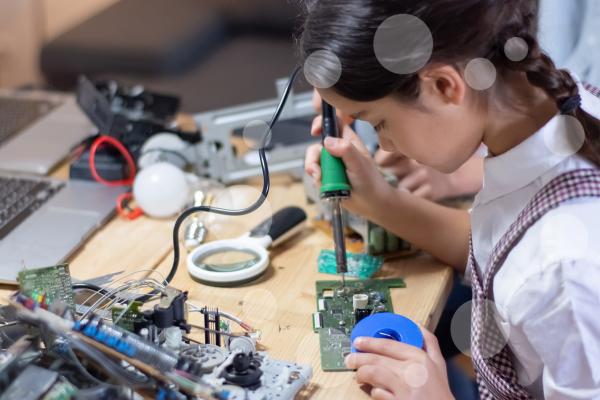Contemporary living takes place in the context of rapidly changing media and information ecologies, characterised by digital technology permeating all dimensions of our society. Computers, data and algorithms are increasingly mediating our relations – with others and the world at large – and, therefore, playing a central role in the way we work, learn, entertain ourselves, and live our daily lives. In the case of education, technology-mediated processes and practices have grown exponentially over the last few years, especially since the Covid-19 pandemic, to the extent of being now at the core of formal, non-formal and informal learning.
Emerging technologies such as generative artificial intelligence (AI), G6 networks, immersive virtual environments or quantum computing will both shape society and be shaped by the way we, as a society, respond to those innovations and how we imagine the future. By anticipating relevant trends and foreseeing possible scenarios, we inform policy developments related to technology in education. On the one hand, new digital technologies will influence teaching, learning, assessment and other key processes in education, reconfiguring digital education ecosystems and the shifting expectations of all stakeholders. On the other hand, the curriculum across all levels and disciplines will need to be adapted to rapidly changing socio-technical contexts, ensuring that all citizens know how to make effective and responsible use of technologies, ultimately developing suitable levels of digital competence based on their needs.
As part of this line of enquiry, the JRC regularly conducts horizon-scanning research to identify new emerging trends, providing a broad overview of such a fluid landscape. Likewise, JRC examines specific innovations with the aim of informing educational practice and policymaking.
Publications
European Commission. Digital Education Action Plan 2021-2027: Resetting Education and Training for the Digital Age, 2020. https://ec.europa.eu/education/education-in-the-eu/digital-education-action-plan_en.
European Commission. Directorate General for Education, Youth, Sport and Culture. Ethical Guidelines on the Use of Artificial Intelligence (AI) and Data in Teaching and Learning for Educators. LU: Publications Office, 2022. https://data.europa.eu/doi/10.2766/153756.
Tuomi, I., Cachia, R. and Villar Onrubia, D., On the Futures of Technology in Education: Emerging Trends and Policy Implications, Publications Office of the European Union, Luxembourg, 2023, doi:10.2760/079734, JRC134308. https://publications.jrc.ec.europa.eu/repository/handle/JRC134308



